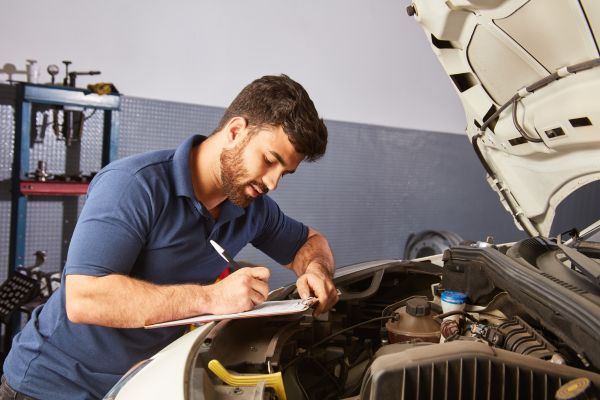Know Your Gearbox.
Your car engine runs at lightning speed. Your car’s heart is the car gearbox. It turns your engine’s power on and allows you to move from one place to the next. This allows your car’s engine to transfer power to your wheels. You should address any gearbox problems immediately. A gearbox can fail because of fundamental design problems, manufacturing defects, lubricant deficiencies, excessive time at stop, or high loading.
The Main Causes of Gearbox Failure
- Frosting
Frosting is the formation micro-pits on the gear’s surface. This happens when the lubricating coating is damaged by heat. Regular inspections, maintenance, temperature checks, and temperature checks can prevent frost from occurring.
- Corrosion
Corrosive wear can cause the gears to fail due to chemical breakdown. The chemical residue left over from lubricants can cause corrosion by consuming the metal in the gears. Corrosive wear is usually represented by consistent, fine pitting on the gear’s surface. Modern lubricants can be used to prevent oil from separating.
- Wear and Tear
Moderate wear can lead to gear failure due to contact patterns favoring the addendum and dedendum zones. This damage is almost inevitable when the gear is used repeatedly. You can reduce the wear and tear caused by moderate wear and tear by keeping your gearbox properly oiled. Regular inspections are a smart idea to detect potential damage before it becomes too late. Contact patterns can also be affected by lubricant contamination. Make sure you use the manufacturer-recommended lubricants for your gearbox.
- Abrasive damage
Radial scratches grooves are a sign of contact wear. Abrasive wear and tear can occur when the lubrication becomes contaminated. This is similar to moderate wear. Abrasions to the gear surfaces can be caused by poor lubrication. This can lead to increased noise, reduced efficiency and even gearbox failure. This type of damage to the gears can be avoided by ensuring that lubrication is maintained and replenished. A filter is necessary to catch foreign bodies such as rust and other metal particles before they cause damage and cause gear failure.
- Lubrication
Gear life is greatly affected by lubrication. Lubrication is essential for the life of your gears. The lubricating oils forms a thin layer that blocks metal-to-metal contact between gears and bearing components. Modern industrial gears use an involute tooth structure, tooth commitment, and a combination of rolling and sliding. The oil film, which is a thin barrier between moving parts, allows the pivoting power to turn the apparatuses efficiently without causing damage to the metal surfaces.
- Arrangement
The gears are designed to work with parallel shafts or right-point shafts and have a particular reaction between the teeth. It is important to assess the arrangement of gears within the housing of the gearbox when undergoing a renovation. Reducer housings have been known to be bent or deformed in situations where the gear reducers were heavily stacked. A slight misalignment can lead to premature gear wear or failure. The teeth of the gear will not fit together properly, which can lead to excessive weight being placed on the lower teeth.
- Particulate contamination
These can be caused by oily or contaminated oil, or wear particles or failures within the gearbox. These particles may not only signal problems within the gearbox but can also cause wear and component failure.
- Shock Loading
This is caused by shock loads that are extremely high and can occur when a gear system is exposed to a load it is not designed to support. It is impossible to predict the outcome of these events ahead of time so extreme caution should be taken to avoid any such catastrophes.
- Fatigue Failure
Repeated loading can cause fatigue over time. Fatigue is caused by the constant load that causes the tooth to bend. Gear tooth failure can be caused by fatigue. Fatigue is a result over time of repetitive loading. Fatigue occurs when a load is placed on a gear tooth. When the gear tooth’s base cracks from fatigue, it is called gear tooth failure. Micro Pitting can be caused by water in the lubricant used for the gears and the wrong viscosity selection. Because micro pitting appears as small dots on the gear tooth’s surface, it is hard to spot.


